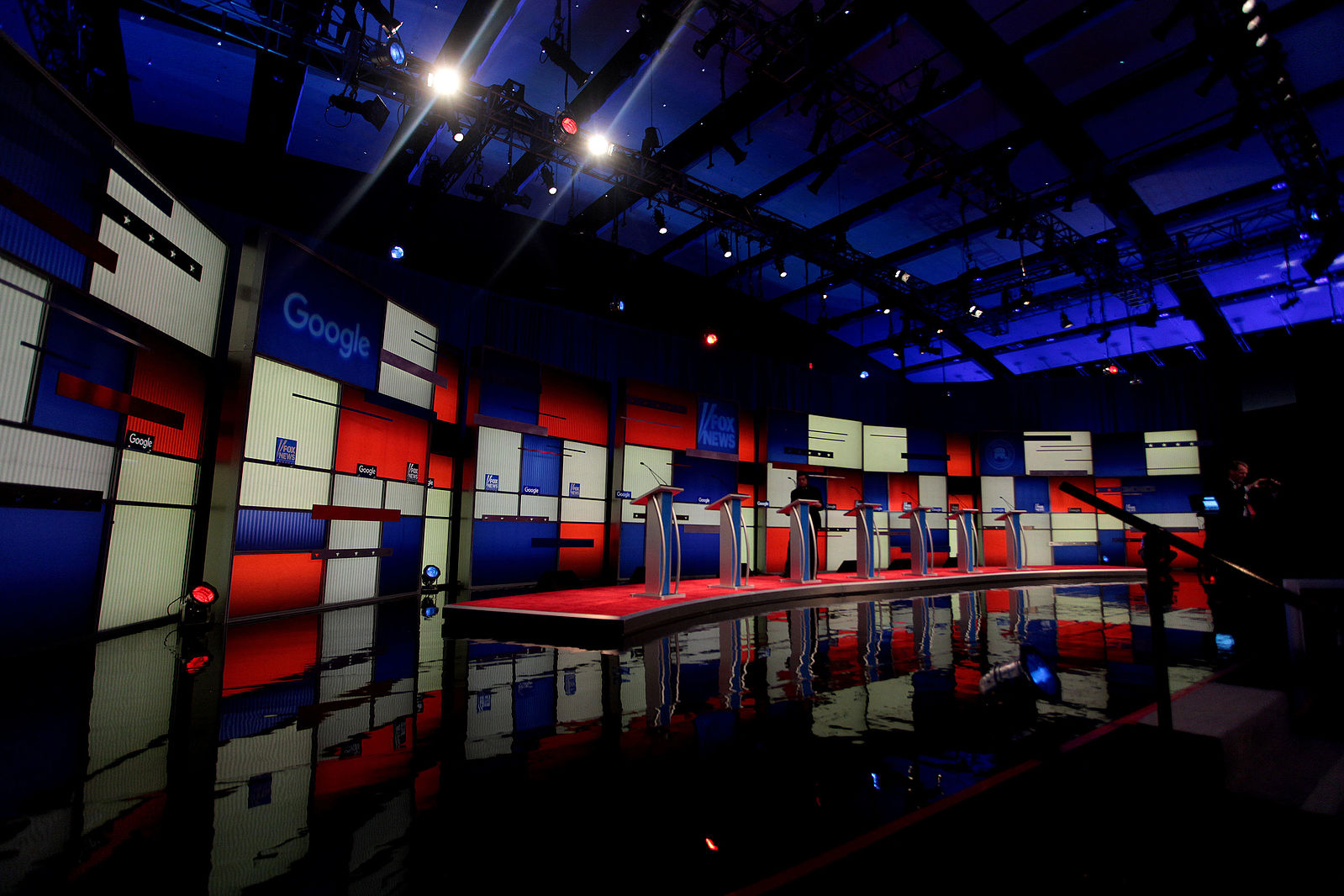With less than a month until election day, there is one thing many of us are more than happy to see come to an end. Regardless of who you’re supporting this election, the two presidential debates have been, in one word, awful. Outside Hillary Clinton and Donald Trump being asked to compliment each other (and of course Kenneth Bone), bright spots are few and far between.
Election debates weren’t always this way. One of the most famous set of debates in American history came in 1858, in the campaign for a Senate seat in Illinois between the powerful Democratic Sen. Stephen Douglas and an upstart Republican challenger named Abraham Lincoln. Even though senators at the time were elected by their state legislatures, Douglas and Lincoln took their arguments to people across the state, talking about big issues such as slavery and states’ rights. The idea of having a presidential debate has always existed in America, but the idea finally came into fruition in 1960 thanks in large to a University of Maryland student named Fred Kahn. Richard Nixon and John F. Kennedy squared off in the first televised debate, which the much more composed and charismatic Kennedy won. Nixon, far sweatier and not nearly as handsome as Kennedy, perhaps recognized this in refusing to debate on television in his future campaigns for the presidency.
Starting in 1976 with vice presidential debates, televised debates between presidential and vice-presidential candidates have become the norm. I took a few hours to watch a handful of these debates, and I was more than impressed by what I saw. Many of those debates were characterized by respectful dialogue, fact-based arguments and candidates who used their time to address the specific questions asked by audience members and moderators. They were, in short, everything our recent debates have not been.
One major scourge of our recent debates (and this election cycle) has been the level of language used to appeal to voters. In this case, most of the blame goes to Trump, who by many analyses is speaking to prospective voters at a level that a third- or fourth-grader could understand. While some voters appreciate some “straight-talk,” Trump’s simple-talk is harmful to the debate process. Explaining complex positions on complex issues requires a higher level of vocabulary.
A second major issue with the debates in this and other recent elections have come from the rise of sound-bite responses to questions from moderators and audience members. While these responses make it easy to formulate debate drinking games, they aren’t conducive to learning about candidates’ views on important policy issues. Throughout the two debates between Clinton and Trump, both candidates have been in the habit of including the same short phrases in many of their answers, even if they aren’t necessarily on-topic with the question that was asked.
Finally, this debate cycle has been characterized by a lack of respectful discourse between Clinton and Trump, and occasionally between the candidates and the moderators. Again, I would think Trump is the main source of this issue. Between constantly chastising the moderators for giving Clinton more time to speak (though Trump actually spoke slightly more than Clinton, according to CNN calculations) and looming closely behind Clinton as she answered questions in the most recent debate (a practice she did not reciprocate), his behavior lacked the basic decency of major party candidates throughout the history of televised presidential debates. At the same time, both candidates seemingly disregarded limits on speaking times, even when prompted by the moderators.
At their very best, debates can be useful tools in helping undecided voters choose who they want to vote for. They allow candidates to explain why their vision for the country is preferable to that of their opponent’s and defend their policies against criticism from everyday citizens and from their opponent. Debates can appeal to voters’ hearts and minds through passionate and logical appeals, grounded in core values and the use of relevant factual information.
How can we get our presidential debates to become these great tools to help appeal to the American public?
A potential solution could come in the form of changes to the basic exchange on questions. Speaking time for candidates should be extended, and the format should allow both candidates adequate time to respond to criticisms of their policies, while eliminating the disrespectful shouting matches than ensue when candidates are unclear as to who is allowed to speak. On a policy question such as “What is your plan to address the Syrian Civil War?” candidates could each be given four to five minutes to make their case, rather than the current two minutes. This could then be followed by two minutes for each candidate to criticize their opponent’s proposal, and conclude with each candidate having two minutes to summarize their stance and make a final appeal for their position compared to their opponent’s.
Why would such a format lead to better debates? For one, a longer period of time to explain policy stances would give candidates a chance to delve into greater specifics on their plans to address complex problems. Additionally, allotting specific times for each candidate to critique the plans of the other candidate would hopefully help undecided voters think critically about potential flaws of the proposed policies. Finally, a summary speech from both candidates can provide voters with a neat summation of a candidate’s proposal and its advantages.
There will be some problems of televised presidential debates that remain intractable. The appearance of candidates will always matter (just ask Nixon), and there will always be moderators who one side or the other views as biased. But if we believe debates can be for more than drinking games and entertainment, we should take a hard look at how formatting debates differently can lead to more respectful and substantive conversations on important issues. It’s time we make debates great again.
Sam Wallace is a public policy graduate student. He can be reached at samhwallace@gmail.com.



